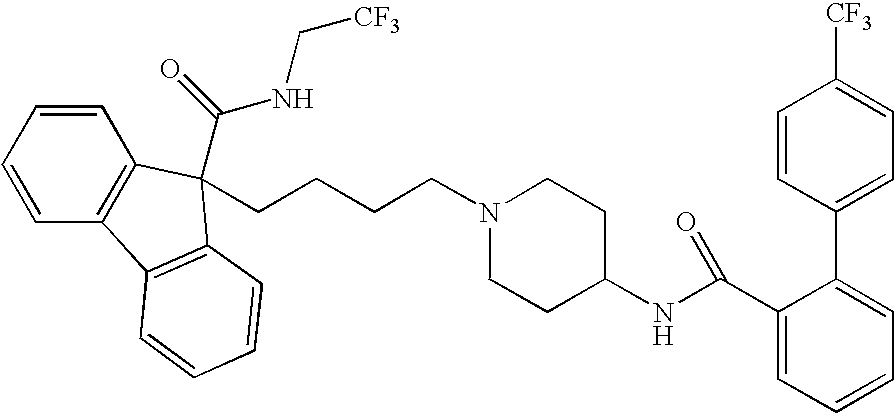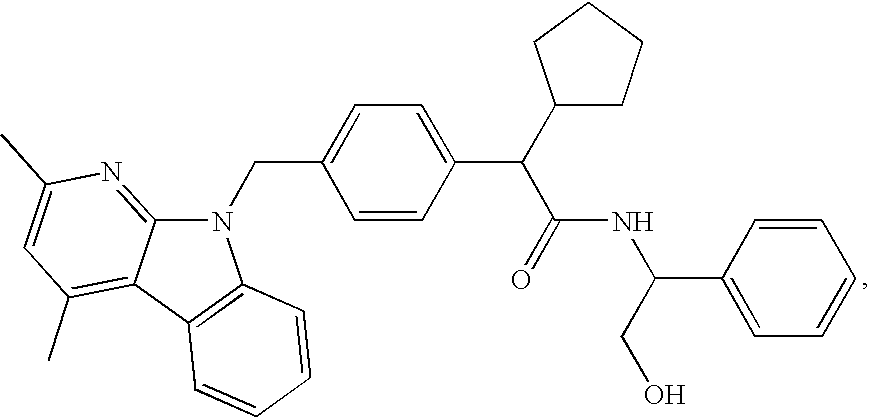Methods for treating disorders associated with hyperlipidemia in a mammal
a hyperlipidemia and mammalian technology, applied in the field of mammalian hyperlipidemia disorders, can solve the problems of affecting the treatment of patients with fh, high triglyceride levels, and often are associated with known risk factors for heart disease, and achieve the effect of reducing adverse effects and aggressive treatment of hyperlipidemia
- Summary
- Abstract
- Description
- Claims
- Application Information
AI Technical Summary
Benefits of technology
Problems solved by technology
Method used
Image
Examples
example 1
BMS-201038 / HMG-CoA reductase inhibitor Combination Therapy
[0063] This study is designed to show that doses of BMS-201038 significantly lower than 25 mg / day, in combination with a HMG-CoA reductase inhibitor, can provide clinically significant reductions in LDL-C while still providing an improved adverse event profile. The primary parameter of efficacy in this study will be the percentage change in LDL-C after 16 weeks of therapy.
[0064] Approximately 175 subjects, both men and women, will be randomized into one of five treatment arms with equal probability. The subjects will have a baseline LDL of 130-250 mg / dL and baseline triglyceride level of less than 400 mg / dL. In treatment arm 1, subjects receive a placebo. In treatment arm 2, subjects receive BMS-201038 (2.5 mg) plus atorvastatin placebo. In effect, treatment arm 2 represents monotherapy with BMS-201038. In treatment arm 3, subjects receive 10 mg of atorvastatin, effectively representing monotherapy with atorvastatin. In tre...
PUM
| Property | Measurement | Unit |
|---|---|---|
| concentration | aaaaa | aaaaa |
| density | aaaaa | aaaaa |
| time | aaaaa | aaaaa |
Abstract
Description
Claims
Application Information
 Login to View More
Login to View More - R&D
- Intellectual Property
- Life Sciences
- Materials
- Tech Scout
- Unparalleled Data Quality
- Higher Quality Content
- 60% Fewer Hallucinations
Browse by: Latest US Patents, China's latest patents, Technical Efficacy Thesaurus, Application Domain, Technology Topic, Popular Technical Reports.
© 2025 PatSnap. All rights reserved.Legal|Privacy policy|Modern Slavery Act Transparency Statement|Sitemap|About US| Contact US: help@patsnap.com


